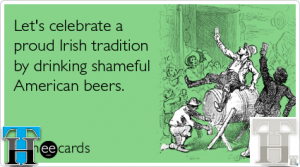As a tour guide, my work day is never routine. I may have a tour in the morning then nothing for the whole afternoon, as many as three in the one day, or none at all! But I'm always in tour guide mode: walking the streets of Dublin, reminded of the history on every street with every step; a tweet here, a Facebook photo there; a frequent glance at my to do list. Even looking at the time reminds me of work. But in a different way than what you might think.
It's 19.13 now, and I just put on the washing. (Most people would just say
'quarter past seven', but accuracy is a tour guide's calling card / pet peeve,
so when I say 'I'll be there in 5 minutes', I mean 5, not 6. Well, ok, not 7,
anyway!) This time of the day reminds different people of different events. For
some it might mean they've already missed the start of their favourite show.
For others, simply that they're overdue for dinner. But for me, for me it
reminds me of Jim Larkin and the Lockout in the year 1913.
Having watched Odyssey, the 1997 film today, it inspires me to persevere
and keep reading the 'modern' modern dead tree version. And so, feeling a bit
Joycean, I wish for you to join me through one day in the life of a tour guide
in Dublin:
If I wake up in the morning in Dublin and the Vikings have already
established it, t'will not be the most productive day. During my coffee break,
I'm enjoying the last century before the Normans come to Ireland, but before I
know it they've already built St. Patrick's Cathedral according to my watch.
Give or take a minute or two.
"Oh, look it's '1:23'", a girl on Grafton st shares with her
friends. I look at my watch. 13.25. Damn! I missed the match. Scotland were
playing England on Irish soil. They both lost. Oh, and Ireland lost too.
The start of Irish dinner time. The best time to be in Dublin. No fresh
pizza today so should be a longer process than the Irish Houses of Parliament,
but hopefully not as complicated.
I try to make sure I'm somewhere else when it's quarter to seven. Ah, sure
I'll do a bit of planning for me travels. Little more than half an hour later
and I'm already in Germany gift-wrapping some presents for the lads back home.
"Should have thrown out this fruit!" It's rotten. Been here too
long. "Wait, sure I only brought it home seven hours ago!" And it
drips all over the floor. Some cleanup!
It's 20.13.
The washing must just be finished.





